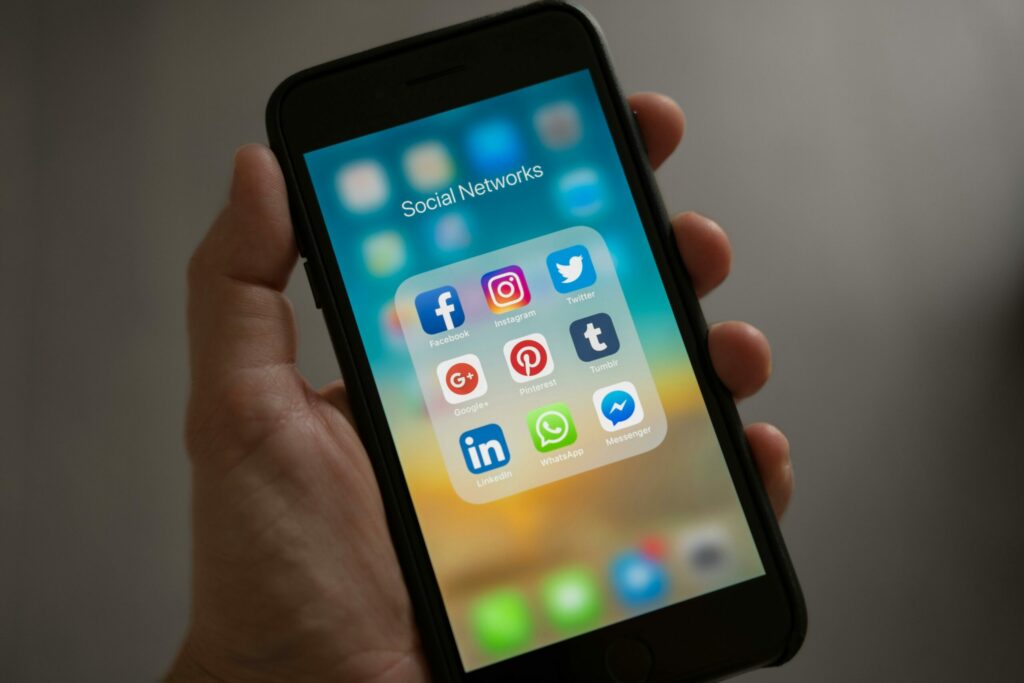With the fast growth of technology, digital marketing has gone through major changes. The classic online ads we used to see such as banners, pop-ups, or sponsored searches, don’t grab attention the way they once did. In today’s world, where people scroll quickly and lose focus easily, authenticity and quick access matter far more than flashy promotion. That’s why influencer marketing has become one of the most effective and trusted ways for brands to connect with their audience.

From Advertising to Influence
Digital saturation has made consumers tired of traditional advertising; indeed, nearly 40% of internet users use a form of ad blocker. Instead of focusing on traditional advertising, customers turn to digital creators they trust. This shift hence created a need for influencer marketing. According to McKinsey, influencer marketing is a collaboration between popular social-media users and brands to promote brands’ products or services
Influencers are now considered a media of their own. Unlike impersonal brand ads, they interact with their followers daily, share real experiences, and therefore build a climate of trust. Whether they are macro influencers with millions of followers or niche micro-influencers, they represent credibility and proximity, two qualities that consumers value and that brands struggle to acquire and maintain on their own.
A Strategic Performance Tool
One might think that influencer marketing is a passing trend; however, it has evolved into a measurable and data-driven tool. Influencers are now an integral part of brands’ digital marketing strategy and funnels, from awareness to conversion. Engagement rates, click-throughs, or even return on investment are being tracked using personalized discount codes, affiliate links, and analytic dashboards.
For instance, the sportswear brand Gymshark has not built its reputation through TV campaigns and banner ads, but rather through fitness influencers who demonstrate products in their own workouts. Doing so, Gymshark created a tight community that is aligned with their values. This represents one example among many others, illustrating how influencers have become essential to brands to achieve good and efficient advertising.
Authenticity and Human Connection
Beyond numbers, the true power of influencers resides in their ability to humanize brands. One of the main qualities of an influencer is their personal authenticity in the way they transform advertising into storytelling. They manage to turn a simple product placement into a personal recommendation, something users can connect to. Therefore, when a trusted influencer makes a post about a product, it isn’t perceived as an ad it actually sounds more like advice from a friend. Promoting via an influencer rather than traditional ads reaches higher engagement and a stronger emotional response.
Furthermore, content formats have diversified: TikTok trends, YouTube vlogs, or even Instagram Reels allow brands to participate in cultural conversations rather than simply broadcasting their message. Digital marketers need to know their target and adapt to the kind of format they might be more sensitive to. In this context, influencers act as creative partners rather than passive promoters, helping brands remain proactive in this fast-moving digital world.

Ethical and Technological Challenges
Like any tool, influencer marketing comes with its limits. Its main challenge remains transparency: fake followers, hidden sponsorships, and over-commercialization can quickly surface and deteriorate trust. To avoid this kind of issue, clear disclosure of paid partnership must be mentioned openly on the influencer’s post.
Another challenging issue is the rise of AI-generated content or virtual influencers. For instance, Aitana Lopez is an AI model created by a Spanish company; with up to three hundred thousand followers, she has been the target of many companies, and has hence collaborated with several of them. While these digital figures do align with brands’ values, they raise ethical questions about authenticity and emotional manipulation. Is being trustworthy and authentic not the main reason for the success of influencer marketing? This therefore questions the use of AI to generate influencers, as it may conflict with consumer expectations and could ultimately harm brand perception. As artificial intelligence grows integrated into marketing, this tension between innovation and sincerity will intensify.
The future of Influence in Digital Marketing
The future of influencer marketing will heavily rely on the evolution of digital marketing as an integrated, data-driven tool. In the current digital age, brands must adapt to a new reality, where authenticity and accessibility reaches more consumers than ever. In this process, influencers play a central role by connecting storytelling, content creation, audience engagement within a single strategy.
In this context, brands should focus less on one-off collaborations and more towards long-term partnerships with influencers who embody their values and express them through meaningful digital narratives. These collaborations are becoming part of digital marketing strategies, where creators can connect with consumers to gain both engagement and conversion.
Finally, as personalization and social interaction continue to grow, influencers have become key players in the customer experience. They shape how people perceive brands, strengthen loyalty, and foster genuine relationships through honest and community-driven communication. In this way, influencer marketing is shifting from being just a communication tool to becoming a central element of digital strategy, blending creativity, data, and human connection to create lasting impact.
Bibliography
B2.AI. (2024, January 15). Ad blocker statistics 2024: Global trends and insights. Retrieved November 9, 2025, from https://www.b2.ai/ad-blocker-statistics-2024/
McKinsey & Company. (2024, April 3). What is influencer marketing? Retrieved November 9, 2025, from https://www.mckinsey.com/featured-insights/mckinsey-explainers/what-is-influencer-marketing